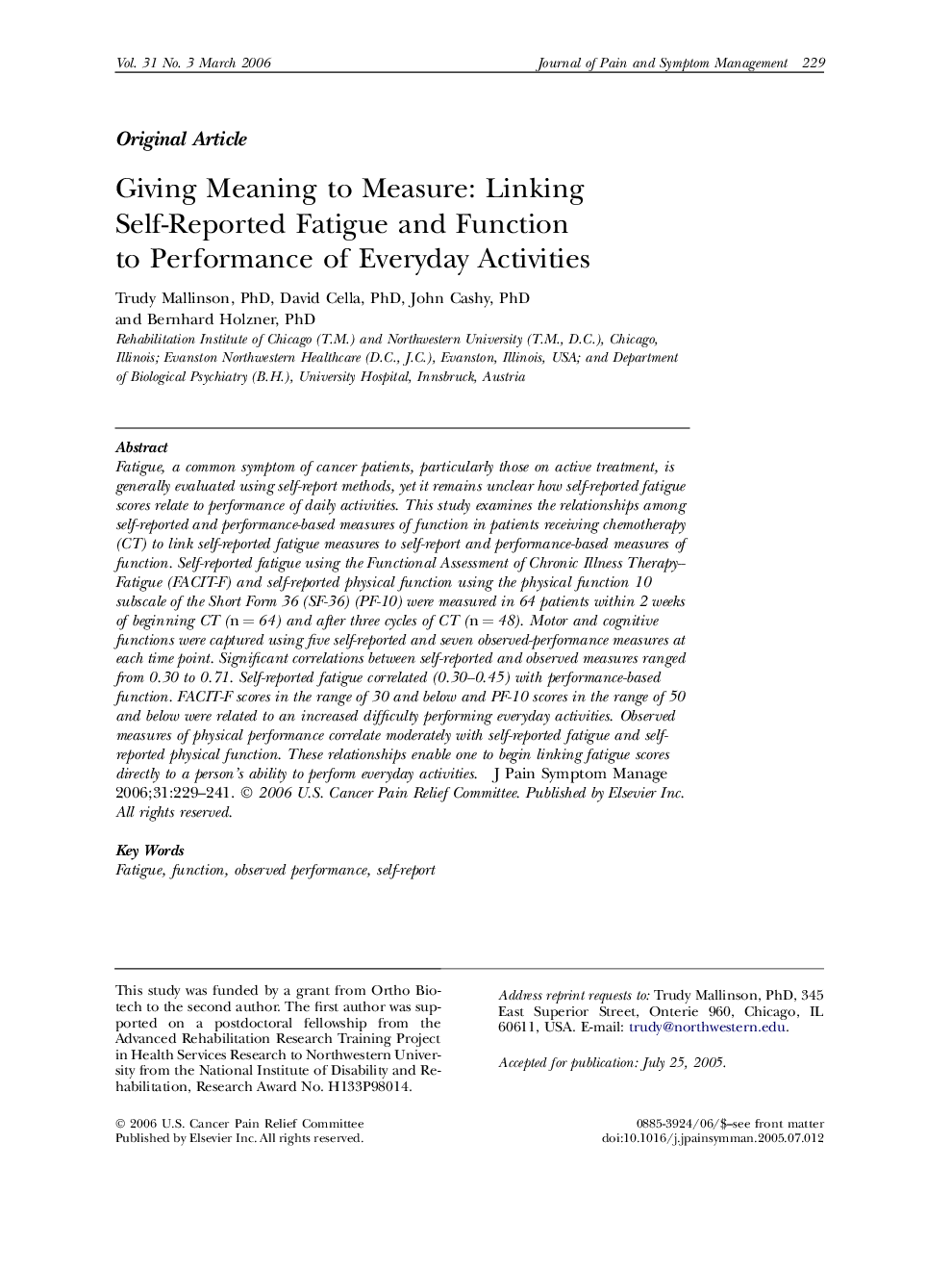| Article ID | Journal | Published Year | Pages | File Type |
|---|---|---|---|---|
| 2730397 | Journal of Pain and Symptom Management | 2006 | 13 Pages |
Fatigue, a common symptom of cancer patients, particularly those on active treatment, is generally evaluated using self-report methods, yet it remains unclear how self-reported fatigue scores relate to performance of daily activities. This study examines the relationships among self-reported and performance-based measures of function in patients receiving chemotherapy (CT) to link self-reported fatigue measures to self-report and performance-based measures of function. Self-reported fatigue using the Functional Assessment of Chronic Illness Therapy–Fatigue (FACIT-F) and self-reported physical function using the physical function 10 subscale of the Short Form 36 (SF-36) (PF-10) were measured in 64 patients within 2 weeks of beginning CT (n = 64) and after three cycles of CT (n = 48). Motor and cognitive functions were captured using five self-reported and seven observed-performance measures at each time point. Significant correlations between self-reported and observed measures ranged from 0.30 to 0.71. Self-reported fatigue correlated (0.30–0.45) with performance-based function. FACIT-F scores in the range of 30 and below and PF-10 scores in the range of 50 and below were related to an increased difficulty performing everyday activities. Observed measures of physical performance correlate moderately with self-reported fatigue and self-reported physical function. These relationships enable one to begin linking fatigue scores directly to a person's ability to perform everyday activities.
